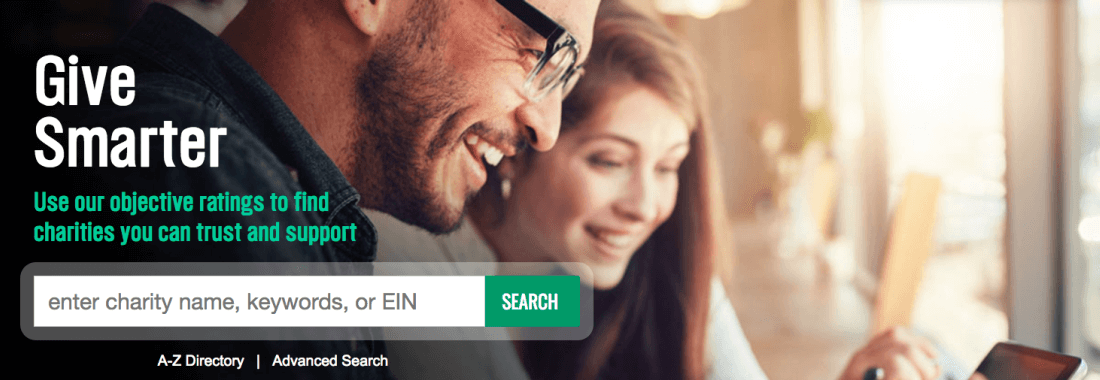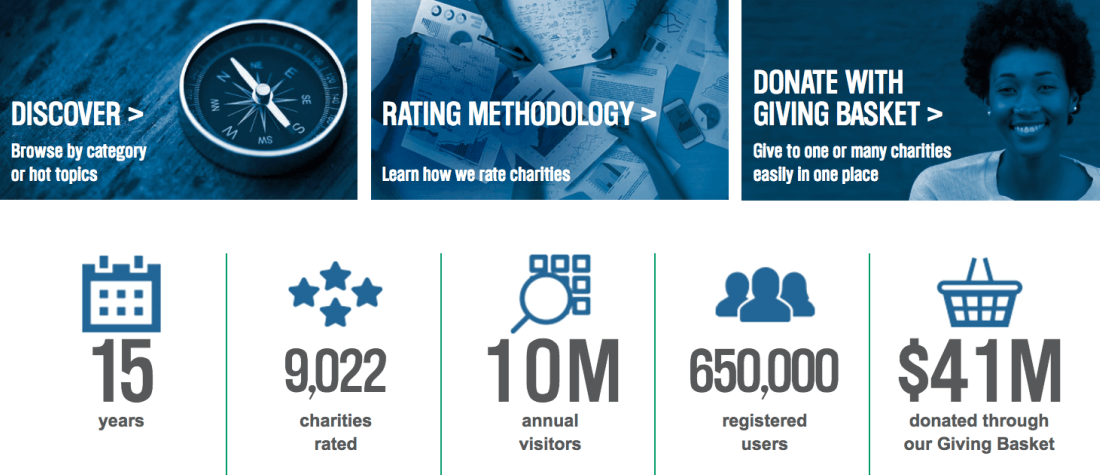
Hurricanes Harvey, Irma, and Maria caused billions of dollars in damages and devastated communities in the Caribbean, Latin America, the U.S. mainland and Puerto Rico. Wildfires in California, Idaho, Montana, Oregon and Washington burned hundreds of thousands of acres of land, reducing homes and other structures to smoldering rubble.
Severe flooding in China and Peru drowned hundreds, while landslides wiped out hundreds more in the Democratic Republic of the Congo and Sri Lanka. Add a major earthquake in Mexico City and it’s easy to see why 2017 felt like a particularly bad year for natural disasters.
If there’s a sliver of hope to be found anywhere in this mountain of catastrophes, it’s that times of tragedy often bring out the best in humanity, spurring us to think about ways in which we can lessen the burdens of others. One of these ways is through giving to charities, and Charity Navigator, the nation’s largest evaluator of charitable organizations, can help you make sure that every dollar you donate counts.
Founded to Protect Donors and Their Investments
“Charity Navigator was founded in 2001 by Pat Dugan after he donated a large sum of money to an organization and later found out that it had engaged in fraudulent practices,” spokesperson Sara Nason explained. “He felt that there should be an organization that could inform donors about the practices of the charities they give to, really making sure that they have the information they need before making a donation.”

Though Charity Navigator began as a private foundation, financed wholly by the Dugan family, it later became a public charity with 501(c)(3) status and is now funded by tax-deductible donations. Throughout its 15 years, the organization has remained committed to its mission to make impactful philanthropy easier for all.
“We do this through equipping, expanding, and deepening the move forward,” Nason continued. “We want to equip the entire philanthropic ecosystem with the tools and ratings information needed to make impactful investments. We also want to expand the number of people and organizations that understand and can commit to the idea of intentional philanthropy. Finally, we want to deepen our community’s commitment to giving.”
Information and Ratings for Thousands of Organizations
Visitors to the Charity Navigator website will find information on over 1.6 million U.S. charitable organizations along with detailed ratings of over 9,000 charities.
“Our team of analysts look at the Form 990 data that the IRS provides directly to us every month,” Nason said. “Through that, they rate the organizations based on two primary categories: financial health and accountability and transparency. Within those two buckets, there are 24 total metrics that they use to provide a rating for the organization.”
The ratings show potential donors how efficiently Charity Navigator believes the organization will use their support, how well it has sustained its programs and services over time, its level of commitment to good governance and best practices, and its openness with information.
“All of the information available on the website is completely free to everyone who wants to use it,” Nason continued. “We don’t solicit contributions from the charities we evaluate. We don’t charge donors to look at the data or charities to have a profile. It’s all completely free. One of our core tenets is that we are unbiased and impartial.”

Five Steps for Informed Giving
With so many disaster victims in need of relief, how can you identify the best charity for your hard-earned donation dollars? Nason advises the following steps:
- Be proactive. “Identify which causes are important to you and really understand the impact you want your donation to have,” Nason suggested. “Once you understand your priorities in that, you can pull together a list of charities that match your interest.”
- Take time for research. “This is where Charity Navigator is a valuable resource,” she continued. “You want to make sure the charities you are considering supporting are tax exempt 501(c)(3) public charities. You also want to make sure that the organization is accountable and transparent as well as financially healthy. That will help you narrow down your list.”
- Check in with the organization. “Speak to someone at the charity directly about the organization’s goals and—specifically with disaster relief—whether they are in the area short-term or have a longer-term plan to affect change,” Nason said. “Ask about the charity’s accomplishments and current challenges as well. That will give you important insight into how well the organization knows where it stands and where it wants to go.”
- Give without strings attached. While a restricted donation can ensure your contribution is used for a specific purpose, unrestricted donations are often a better choice. “They provide the charity with the flexibility they need to really respond to disasters in times of crisis,” Nason said.
- Follow up. “Six months to a year after your donation, follow up with the organization and find out how your contribution was used and if the charity is making an impact,” Nason concluded. “You want to get a progress report in terms of their goals and what they’re actually doing on the ground.”





